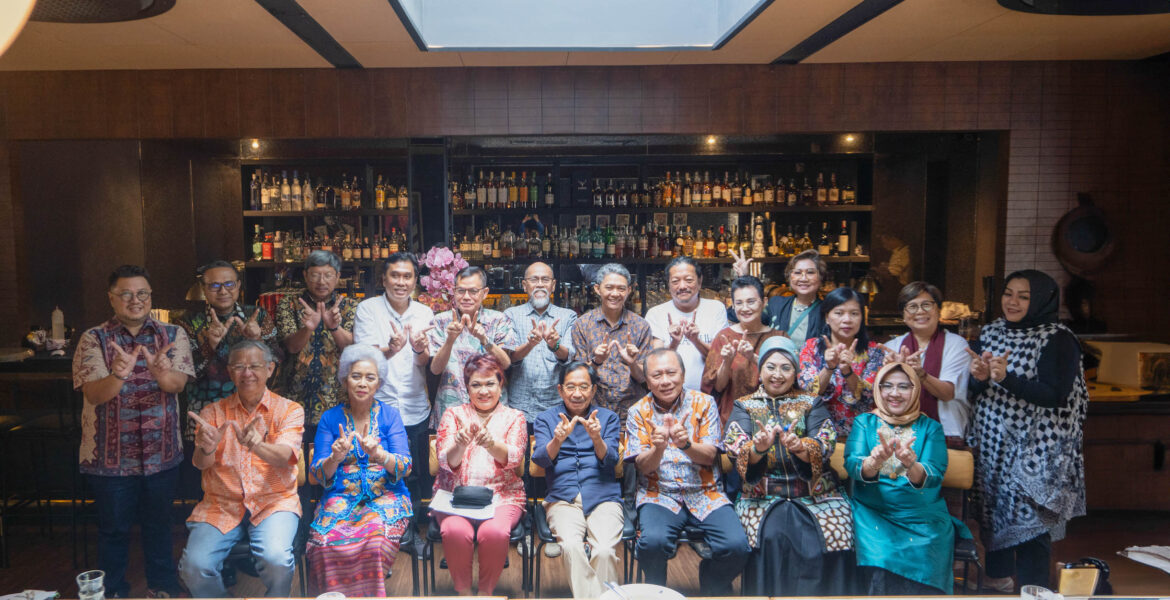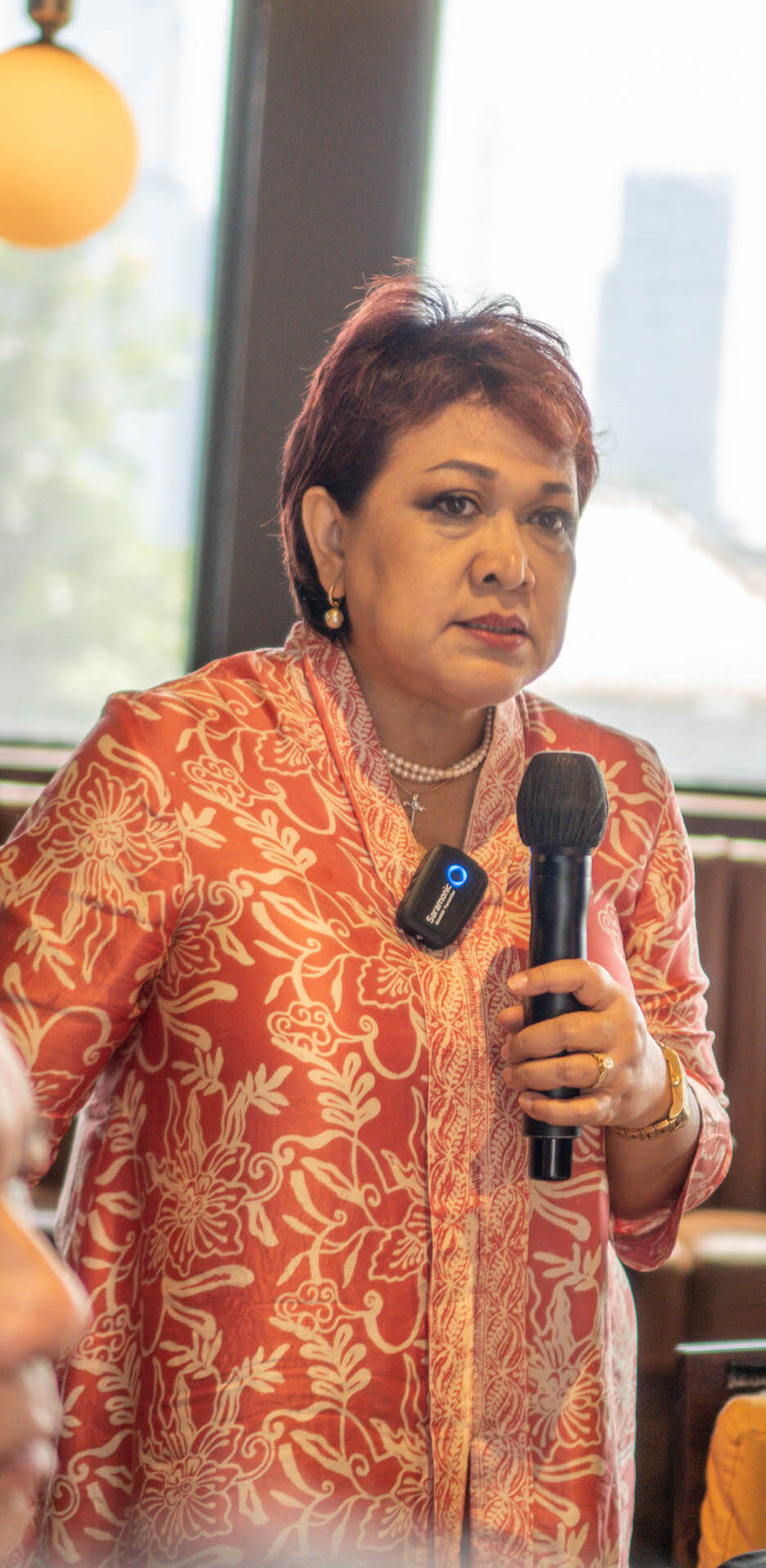JAKARTA, ULTIMOPARADISO – The Board of ETNA Tourism was finally successfully formed and declared in Jakarta on Saturday (8/7/2023). The declaration took place at PENN Jakarta, Jl. Wolter Monginsidi No.25, Kebayoran Baru, South Jakarta which was attended by around 31 associations related to health and wellness for ethnic Indonesians.
The establishment and existence of the Board of ETNA Tourism aims to increase awareness of wellness in the community as an important part of promoting wellness tourism so that it is better known and becomes an attraction for tourists, both from within and outside the country.
Chairman of the Indonesian Wellness Master Association (IWMA), Dr. Drs. Jajang Gunawijaya, M.A who was met after the declaration said that Indonesia is rich in wellness which has its roots in thousands of ethnic groups and archipelago kingdoms which are then called ethno wellness.
Of the 3 associations and the Indigenous Council and the Kingdom of the Archipelago (MAKN), it is called the ethno wellness of the archipelago. Then, from the 3 associations plus MAKN, they formulated it as the archipelago’s ethno wellness or called ETNA.
This activity, according to Jajang, must be popularized, communicated and promoted both on a national and international scale.
According to Jajang, of the thousands of ethnic groups in Indonesia, thousands of them also contain the wealth of the archipelago’s ethno-wellness.
“But there are 15 that have been studied in depth by experts,” said Jajang.
Meanwhile, Chair of the Wellness & Healthcare Entrepreneur Association (WHEA), Dra. Agnes Lourda Hutagalung, CONFEC, ITEC, CIBTAC, BABTAC, Diplom, Arom, WM, CIDESCOS stated, this activity was in the context of increasing the competitiveness of Indonesia’s wellness tourism with several other countries in the world.
“In other countries there are Thai Massage, Shiatsu, Swedish Massage, Indian Ayuverdha. Even though Indonesia is richer in wellness,” said Lourda.
With the increasing number of health and wellness tourism destinations originating from Indonesian ethnic groups, this will have an effect on increasing the economy and people’s welfare.
By definition, wellness tourism refers to a tourist destination in the form of travel or tourist visits that aim to improve overall health, wellness and well-being.
Wellness tourism offers a holistic experience that includes a variety of activities that support physical, mental and emotional health.
“There are thousands of ethno-wellness of the archipelago owned by Indonesian indigenous people. There have been dozens that have been explored by anthropologists as a national standard literature on ethno-wellness of the archipelago,” said Lourda.
With so many ethno wellness owned by Indonesia, of course it is a special attraction for foreign tourists to come to Indonesia.
Lodra also describes some examples of popular wellness tourism:
Spa and Wellness Center: Tourists can visit the spa or wellness center which offers a variety of relaxing treatments such as massages, body treatments, water therapy, yoga and meditation.
Health Resorts: There are specially designed resorts to provide health and wellness programs. There, you can join yoga, meditation, pilates classes, or even join a weight loss program.
Hot Springs: Some areas have natural hot springs which are believed to have healing and relaxing benefits. For example, Onsen in Japan or Blue Lagoon in Iceland.
Natural Destinations: Travelers can choose to visit places that offer relaxing and refreshing natural surroundings such as mountains, beaches and forests. Taking a walk in nature can provide peace and mental freshness.
Spiritual Retreat: For those seeking peace and spiritual quest, a spiritual retreat may be an option. In these places, you can learn meditation, yoga or engage in other spiritual practices.
Fitness Program: Tourists can join a fitness program specially designed to improve their physical condition and health. This can include activities such as hiking, biking, water sports, or participating in fitness classes.
Healthy Culinary: Several wellness tourist destinations offer healthy and organic food choices that support a balanced diet and are good for health.
Furthermore, here are a number of associations that took part in holding the Board of ETNA Tourism declaration:
1. Chairman of the Wellness and Health Entrepreneur Association (WHEA)
2. Chairman of the Indonesian Wellness Master Association (IWMA)
3. Chairman of the Wellness Spa Professional Association (IWSPA)
4. Chairman of the Indonesian Medical Council (KKI)
5. Chairman of the Indonesian Doctors Association (PDSI)
6. Chairman of the Indonesian Association of Anti-Aging, Wellness, Aesthetic & Regenerative Doctors
(PERDAWERI)
7. Chairman of the Indonesian Lung Doctors Association (PDPI)
8. Chairman of the Indonesian Community Recreation Sports Committee (KORMI)
9. Chairman of the Association of Herbal Medicine Entrepreneurs (GP JAMU)
10. Chairman of the Indonesian Essential Oil Council (DAI)
11. Chairman of the Association of Village Entrepreneurs (APEDI)
12. Chairman of the Indonesian Food Service Providers Association (PPJI)
13. Chairman of the Indonesian Food and Beverage Producers Association (GAPMMI)
14. Chair of the Wellness Institute (IWI)
15. Chairman of the Indonesian Employers’ Association (ASPINA)
16. Chairman of the Indonesian Employers’ Association (APINDO)
17. Chairman of the Indonesia Inbound Tour Operators Association (IINTOA)
18. Chairman of the Association of The Indonesian Tour and Travel Agencies (ASITA)
19. Chairman of the Association of Indonesian Travel Agents (ASTINDO)
20. Chief Young Indonesian Architect (AMI)
21. Chairman of the Indonesian Interior Design Association (HDII)
22. Chairman of the Indonesian Hotel and Restaurant Association (PHRI)
23. Chairman of the Jakarta Hotels Association (JHA)
24. Chairman of the Bali Hotels Association (BHA)
25. Chairman of the Indonesian Hotel General Manager Association (IHGMA)
26. Chairman of the Indonesian Hotel General Manager (IHGM)
27. Chairman of the Indonesian Association of Hospitality Leaders (AHLI)
28. Chairperson of the Indonesian Association of Women’s Dharma (DWP)
29. Chairman of the Indonesian Women’s Congress (KOWANI)
30. Chairman of the Traditional Council of the Archipelago Kingdom (MAKN)
31. Chairman of the Betawi Cultural Institute (LKB) ***



